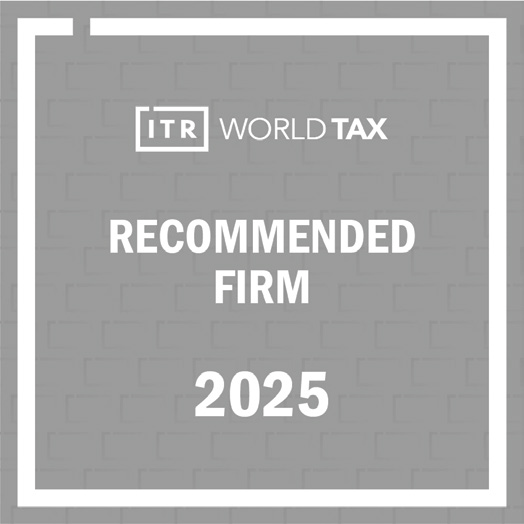The Inconsistency Between New Stamp Duty Tariff and Capital Market Policy

Effective as of 1 January 2021, the Government of Indonesia set a single stamp duty tariff of IDR10,000 per document, an increase from IDR6,000 per document previously. This stamp duty policy also applies to securities transactions, including stock trading in the capital market. However, before it officially took effect, netizens largely rejected the plan to impose IDR10,000 stamp duty on stock transactions.
On the Change.org website, a number of petitions have appeared rejecting the imposition of stamp duty on share transactions and requesting the government to evaluate the single stamp duty policy. The first petition was titled "Refuse Stamp Duty for Shares", which as of this writing has been signed by more than 7,300 people. Meanwhile, the petition titled "Evaluate Stamp Duty for the Stock Market!" received the support of 5,000 people.
The reasons both petitions rejecting the stamp duty are relatively the same. Apart from being burdensome for retail investors with small capitals, it is also counterproductive to the government program that encourages people to invest in shares. Instead of supporting the “Let's Invest in Stocks!” program, the opposite will likely happen, namely reducing people's enthusiasm to invest in the capital market.
This story begins with the issuance of Law Number 10/2020 on Stamp Duty on 26 October 2020, which amended Law Number 13/1985 on Stamp Duty.
The new Stamp Duty Law states that the securities transaction document or trade confirmation is subject to a stamp fee of IDR10,000 and is an expense payable by the recipient of the document. Recipients of documents that do not pay the stamp duty or pay it less are threatened with a fine of 100% of the stamp duty that should be paid. This administrative sanction will be pointed out in a Tax Assessment Notice (Surat Ketetapan Pajak/SKP). The detailed provisions on the obligations of stamp duty collectors will be further regulated by the Minister of Finance.
Previously, the old Stamp Duty Law did not regulate the imposition of stamp fee on securities transaction documents. So, it is natural that the imposition of stamp duty of IDR10,000 on trade confirmation provokes a mixed reaction within the community.
Investors Lose Money, the Government Makes Money
Most investors deplore the fact that the stamp duty tariff of IDR10,000 is higher than taxes, levies, and brokerage commissions. This policy is seen as burdensome because it may reduce the potential net income of capital market investors.
As an illustration, a novice investor purchases 1 lot (100 shares) of XYZ’s shares, at a price per share of IDR50. Taking into account the purchase fee of 0.15% of the total share price (IDR7.50); a levy of 0.04% of the total share price (IDR2.00); a Value Added Tax (VAT) 10% of the fee value (IDR0.75); and a stamp duty on the trade confirmation of IDR10,000, the total expenditure of investors to buy 1 lot of XYZ’s shares is IDR15,010.25.
In case that the next day the shares are sold, for example at a price of IDR60 per share, the investor will be charged with another sales fee of 0.2% of the sales value (IDR12.00); a levy of 0.04% of the total share price (IDR2.40); a VAT of 10% of the fee value (IDR1.20); an income tax of 0.1% of the selling price of shares (IDR6.00); and a stamp duty of IDR10,000.
Based on these calculations, at least the expense of trading and tax borne is IDR20,031.85. Thus, the investor will suffer a loss of IDR4,013.2 from XYZ's share purchase transaction that was later resold—even with a higher selling price difference of IDR10 per share.
The question then, which party benefits the most in this stock trading transaction? Of course, in this case, it is the government that generates revenues from the VAT, the income tax, and the stamp duty.
The story will certainly be different if it follows the current provision, which excludes securities transaction documents from the object of stamp duty. Investors will actually be benefited because they have the potential to earn a net profit of IDR968.15.
In case that the stamp duty is still charged on the securities transaction document, at least an investor needs to sell their shares at a price of IDR252. The expense of trading and tax borne is still IDR20,156.41, but the investor will get a net profit of IDR43.59.
Using such assumption, the value may not be much. However, imagine if the transaction is conducted by thousands or even hundreds of thousands of investors in the capital market every day.
Based on the data from the Indonesian Central Securities Depository (Kustodian Sentral Efek Indonesia/KSEI), the recorded number of Indonesian capital market investors reached 3.39 million from January to 27 October 2020. Moreover, the average frequency of transactions in 2020 compared to 2019 increased to 619,000 transactions or 31.98%, which is the highest achievement in the history of the Indonesian capital market. Whereas on 24 March 2020, IDX Composite (IHSG) was depressed to the level of 3,937 due to the COVID-19 pandemic that entered Indonesia. It shows that the public interest in investing in the capital market has increased, even in times of crisis and outbreak as it is today.
Tariff Flexibility
The funny thing is, Law No. 10/2020–which stipulates the single tariff—still provides a space for the government to adjust the stamp duty tariff, which may differ from what is written in the law, on the condition that tariff adjustments can be considered in the context of implementing government programs and supporting the implementation of monetary and/or financial sector policies. This regulation also offers a stamp duty exemption, either temporarily or permanently, which will be further regulated in a Government Regulation (Peraturan Pemerintah/PP). Previously, the discretion of this tariff adjustment was not regulated in Law Number 13/1985.
The flexibility tariff on the one hand raises the expectation that the government will impose a lower stamp duty tariff than the normal tariff of IDR10,000. Especially in case that securities transaction documents are exempted from stamp duty, investors should be grateful.
On the other hand, it is not impossible that one day the stamp duty tariff becomes higher than it should be under the pretexts mentioned. If this happens, it will be a disaster for retail investors. Again, the old issue of uncertainty seems to still overshadow policy implementation.
New Uncertainty
The diverse interpretation from the public, especially investors, has forced the Directorate General of Taxes (DGT) to provide a clarification related to the polemic of the new Stamp Duty Law. The DGT emphasized that the government still has to compile implementation rules before carrying out the mandate of Law Number 10/2020. During the process, the government will consider the limits on the fairness of the transaction value stated in the documents and the community's capacity.
In addition, the government will also consider granting stamp duty exemption facilities on trade confirmation and prioritizing coordination between the DGT and other related parties.
I believe the DGT's clarification has not answered the problem, but rather showed the DGT's nervousness in responding to public anxiety. This is because, in the end, the one who decides the amount of stamp duty tariff on securities transaction documents is the Minister of Finance, while the DGT is only the implementer of the policy; populist or not.
At least, there is still time until the end of the year to invest in the capital market. As to the continuation of investing in stocks, we should wait for which side is the government on next year.
**) A short version of the article was published in Kumparan.com on 21 December 2020.
Disclaimer! This article is a personal opinion and does not reflect the policies of the institution where the author works.


